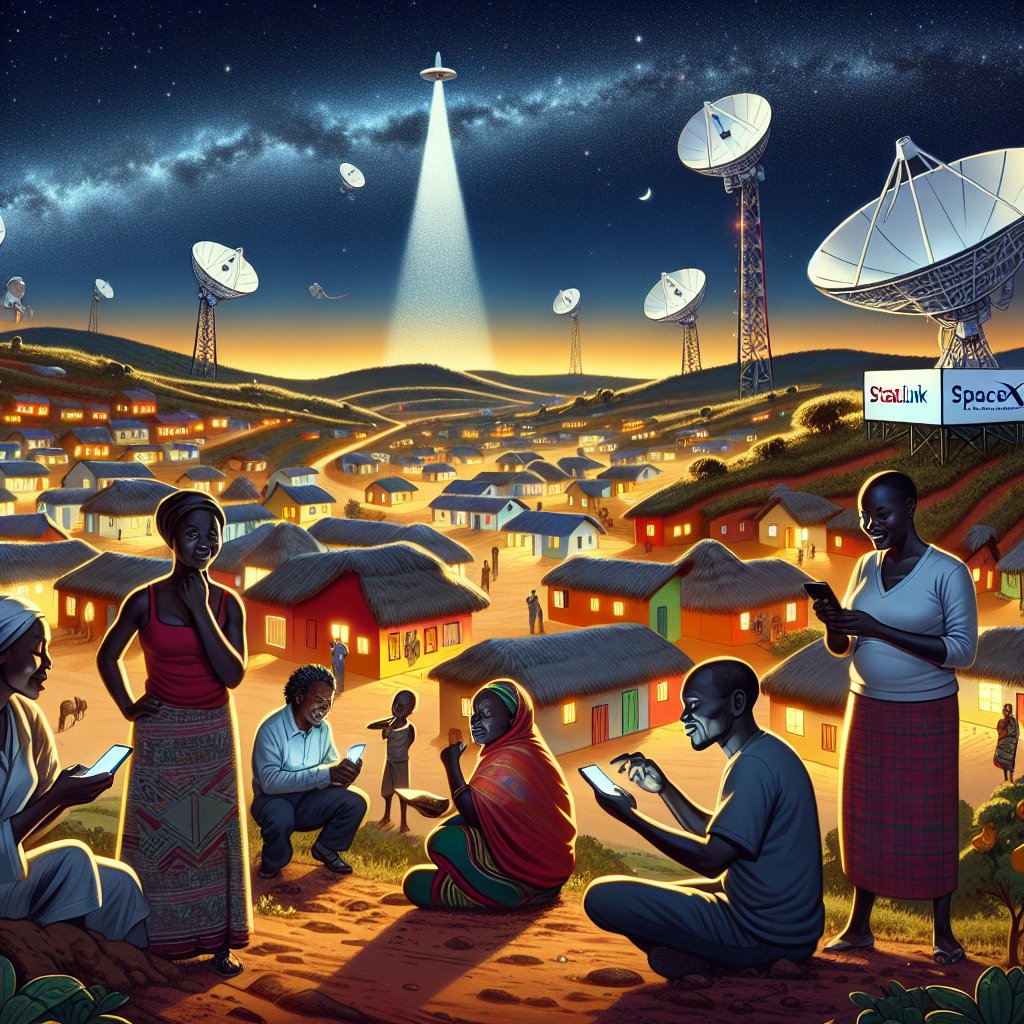Content created by AI
SpaceX's Starlink Broadens Horizons in Africa with Eswatini Launch and Rand Pricing
In a strategic move set to revolutionize internet connectivity in Africa, SpaceX's Starlink has officially commenced operations in Eswatini, the company's eighth continental market. This rollout marks a significant step for the region, as it not only offers a fast and reliable internet service but also introduces Rand pricing for users in the continent — a first for the company.
For residents of Eswatini, previously known as Swaziland, this means access to a consistent, high-speed internet connection that is key to unlocking the potential of individuals and industries. With an R950 monthly service fee, an additional R120 regulatory fee, and various package options, Starlink has positioned itself as a competitive option within Eswatini's telecommunications market.
The importance of this move cannot be overstated for South Africa and neighboring nations, as the pricing structure in Eswatini may set a precedent for future Starlink services in these countries. As eyes turn towards the rollout in Angola and the anticipated 2024 launch in Botswana, Lesotho, Namibia, and Zimbabwe, Starlink's commitment to expanding digital infrastructure highlights a major shift in the accessibility of internet services in Africa.
With the continent's vibrant economies and growing technology sectors, the arrival of Starlink holds the promise of enhancing business operations, expanding educational possibilities, and facilitating greater communication capabilities across varied terrains and rural areas previously plagued by limited connectivity.
However, the journey has been fraught with regulatory challenges, particularly in South Africa, where onerous licensing requirements have prompted SpaceX to re-evaluate its rollout strategy. The mandate for local operations to have a 30% ownership by historically disadvantaged groups has presented an additional obstacle.
Despite this, illegal use of Starlink has surged in the country, with around 12,000 establishments tapping into its regional roaming services. Actions by industry regulators, such as the Independent Communications Authority of South Africa (Icasa), towards IT Lec, highlight the complexities arising from the clash between innovation and existing legal frameworks.
Starlink's growth trajectory in Africa poses both an opportunity and a challenge. It asserts the urgent need for modernized regulations that facilitate, rather than hinder, technological advancements. For Eswatini and its citizens, the implications of this launch extend beyond simple internet access — it represents a step towards a more connected, global community.
With pricing comparisons now available across the eight African countries where Starlink is operational, consumers have a clearer perspective on costs. As each market unveils its potential, it remains crucial for businesses, legislators, and communities to navigate the space where technology intersects with legal and ethical considerations.
In essence, SpaceX's expansion is not just about satellite dishes and subscriptions — it is about establishing a foundation for the digital future of Africa. Eswatini's connection to the Starlink network is indicative of a continent poised to embrace the digital revolution, with all its ensuing benefits and challenges.










